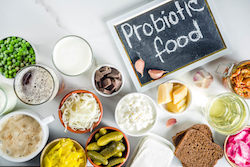As the global science community races to develop an effective vaccine to stop the Coronovirus pandemic, a recent article in The Korean Bio-Medical Review caught my attention: ‘Korean researchers found substance inhibiting COVID-19’. At the time, I was researching the digestive symptoms some Covid-19 patients are reporting, as well as looking for the latest scientific research into probiotics.
Good bacteria and probiotics were a very new field of scientific study when I first qualified as a nutritional therapist but I credit these microbes for helping me to transform my own health and to manage my Ulcerative Colitis.
The Korean scientific study claims that Sea Buckthorn Berry’s lactic acid bacteria can contain the spread of the new coronavirus by inhibiting the activation of its energy source. More specifically, the probiotic bacteria extracted from fermented Sea Buckthorn Berry had lots of lactobaciullus gasseri (L.gasseri) and this repressed the activation of purine which the new coronavirus requires to mutate. Purine is a base (such as adenine or guanine) that is a constituent of DNA or RNA.
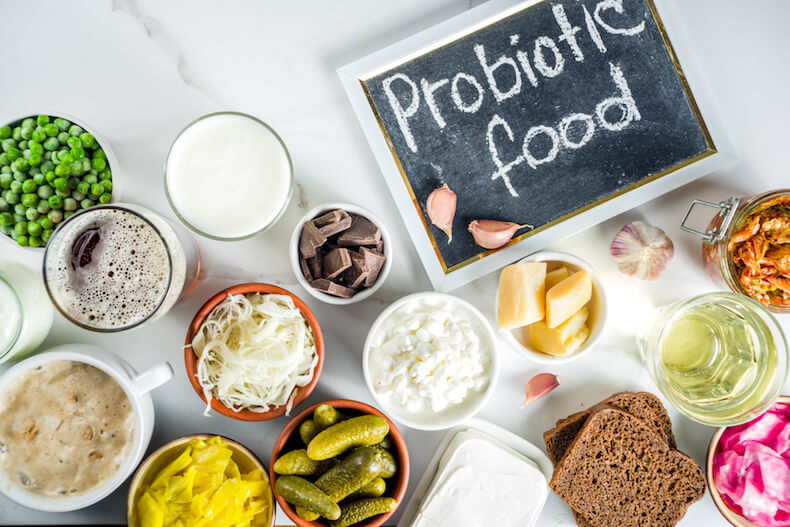
In China, a separate research team led by Professor Ruan Jishou from Nankai University in Tianjin recently discovered that COVID-19 in the human body mutated in a similar way to the Ebola and AIDS virus. According to the Chinese research team, Covid-19 creates spike protein to survive within the human body. The spike protein contacts the cell membrane and attacks purine to acquire energy for its replication.
Notably, Korea is also using AIDS drugs to treat COVID-19 patients by inhibiting proteolytic enzyme activity. A patient’s symptoms improved significantly in a few days after administrating Kaletra and AIDS drugs. Professor Yoon expects the probiotic bacteria in Sea Buckthorn Berry to be a supplementary treatment to suppress COVID-19 spread.
Covid-19 and Cytokine Storms
Delving further into lactobacillus gasseri, I came across a separate study published in October 2019 in Frontiers in Immunology. Lactobacillus gasseri was found to suppress the production of proinflammatory cytokines in Helicobacter pylori-infected macrophages.
Cytokine storms are a common complication not only of Covid-19 and flu but of other respiratory diseases caused by coronaviruses such as SARS and MERS.
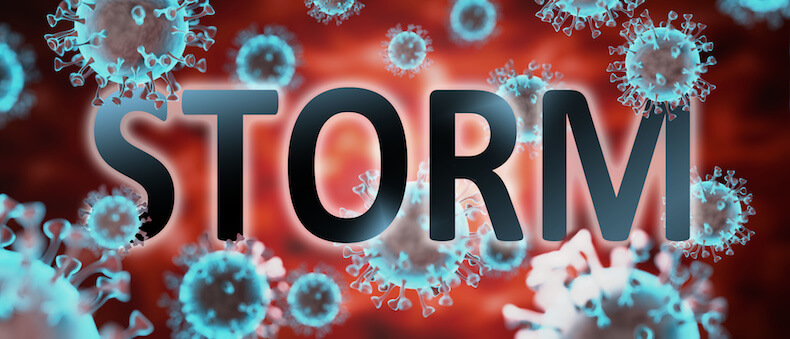
Cytokines act as chemical messengers between cells and interact with cells of the immune system to regulate the body’s response to disease and infection, as well as mediate normal cellular processes in the body. They are important in both health and disease specific to the host’s response to infection, immune responses, inflammation, trauma, sepsis, cancer, and reproduction.
Diseases such as Covid-19 and influenza can be fatal due to an overreaction of the body’s immune system which can provoke a cytokine storm. This is when the body attacks itself, unable to distinguish itself from the enemy invader or virus. An overproduction of immune cells, and their signaling compounds (cytokines) can trigger hyper-inflammation and this can cause substantial tissue damage, an effect of many autoimmune disorders such as Lupus, Rheumatoid Arthritis, MS, Diabetes, Crohn’s Disease and Ulcerative Colitis.
What is lactobacillus gasseri?
A probiotic, Lactobacillus gasseri is a strain of the Lactobacillus family of bacteria naturally found in the digestive and urinary tracts. The bacteria is thought to help the body suppress harmful bacteria and to enhance immune function and aids in digestion. A number of clinical trials have suggested that Lactobacillus gasseri may also help reduce abdominal fat and support weight loss, as well as be beneficial for managing inflammatory bowel disease.
Covid-19: Strengthen your body’s natural defences
Aside from taking precautions to protect yourself from the virus on the outside, you can also build up your body’s defences from the inside by strengthening your immune system. Replenishing the gut with more good bacteria is really pivotal to this and it is something you can do even whilst you are staying at home on lockdown.
Tim Spector, Professor of Genetic Epidemiology at King’s College London, provided some useful insights in The Conversation this past month. Professor Spector explains that the immune system is complex with many factors affecting its function. However, “what’s important to know is that most of these factors are not hard-coded in our genes but are influenced by lifestyle and the world around us”.

Professor Spector says “One thing that you can control immediately is the health of the trillions of microbes living in your gut, collectively known as the microbiome. Recent research has shown that the gut microbiome plays an essential role in the body’s immune response to infection and in maintaining overall health. As well as mounting a response to infectious pathogens like coronavirus, a healthy gut microbiome also helps to prevent potentially dangerous immune over-reactions that damage the lungs and other vital organs. These excessive immune responses can cause respiratory failure and death. (This is also why we should talk about “supporting” rather than “boosting” the immune system, as an overactive immune response can be as risky as an underactive one.)”
Professor Spector also explains that “Gut bacteria produce many beneficial chemicals and also activate vitamin A in food” and that these “help to regulate the immune system.” Vitamin A is sourced from betacarotene-rich fruit and vegetables such as carrots, sweet potato and squash – and of course, Sea Buckthorn Berry if you happen to live near the coast.
How can I strengthen my microbiome and boost my good bacteria?
Eating a wide range of plant based foods and limiting highly-processed foods is the best way to increase microbiome diversity – your good bacteria. Avoid junk food!
Professor Spector says: “Following a Mediterranean diet has also been shown to improve gut microbiome diversity and reduce inflammation: eating plenty of fruit, vegetables, nuts, seeds and whole grains; healthy fats like high-quality extra virgin olive oil; and lean meat or fish. Avoid alcohol, salt, sweets and sugary drinks, and artificial sweeteners or other additives.”
You an also eat foods which contain microbiome enriching good bacteria – probiotics.
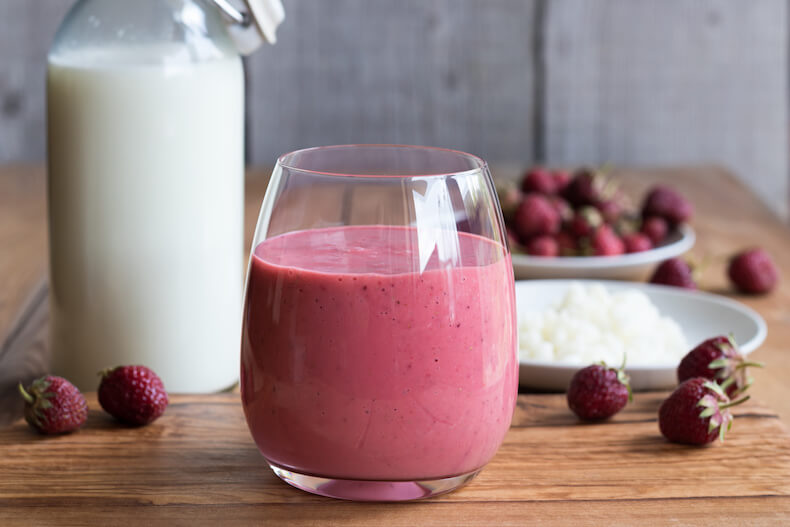
Best Sources of lactobacillus gasseri and probiotics:
There is a variety of natural food sources for probiotics. Full fat live bio yogurt is the best known and this is milk fermented with specific Lactobacillus or Bifidobacterium strains.
Other fermented foods that contain good ‘health-promoting’ bacteria include:
- Kefir (You can make your own but I like Chuckling Goat’s Probiotic Live Goat’s Milk Kefir which has 35 probiotic strains including lactobacillus gasseri. You can even add extract of Sea Buckthorn powder (a source of rare omega-7, beta-carotene and phytonutrients that work together to support your immunity, mucosa function and skin health), or fresh berries.
- Kombucha (Wild Fizz’s Organic Lavender & Rosemary is a Kombucha that I particularly like and I have Jeannette Hyde, Author of The Gut Makeover to thank for introducing this to me (I recommend Jeannette’s recipes too!) Watch out for added sweeteners in a lot of the supermarket brands of Kombucha though).
- Fermented, raw cheeses (Emmental, aged Gouda, Gruyere, Parmesan – look for the words “raw”, “probiotic,” or “made from raw milk” on the label. Remember, no cooking or melting if you want to preserve the probiotic benefits!
- Sauerkraut
- Raw apple cider vinegar
- Kimchi
- Natto
- Miso
- Tempeh
Probiotics and good bacteria can be beneficial for most people but you may need to avoid Lactobacillus if you have a compromised immune systems. Those with advanced HIV infection, those who are organ transplant recipients, and those taking immunosuppressive drugs for cancer and other conditions should consult a medical practitioner first.

